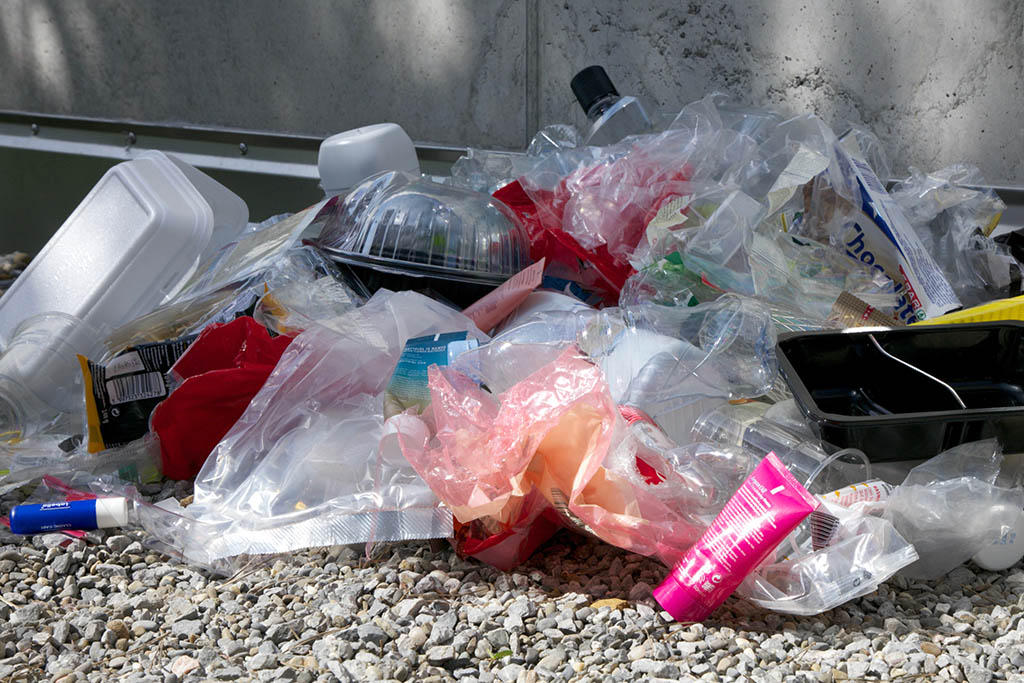
Geneva bans sale of single-use plastic on public land
Starting in 2020, the city of Geneva will prohibit the sale of disposable plastics at events as well as at sales points on public property – a year ahead of a similar EU ban.
The new law will apply to kiosks, terraces, vending vans and ice cream parlours, as well as to all city-approved events held on public property. Banned products include plastic straws, cutlery, cups and other disposable containers, which are generally difficult to recycle in Switzerland.
+ Why plastic recycling remains a struggle for the Swiss
The measure is aimed at “protecting our ecosystem”, Geneva city parliamentarian Guillaume Barazzone told newspaper Tribune de GenèveExternal link on Tuesday. Lake Geneva has shown high levels of plastic contamination.
“I hope that operators will really play the game,” the member of the centrist Christian Democratic Party said. Those who don’t obey the ban will face fines and perhaps lose their permits to do business on public land.
Businesses now have the rest of the year to find alternative materials and use up any throwaway plastics in stock.
With this ban, the city of Geneva is following the example of the European Union, which has decided to ban a number of disposable plastic products from 2021. As a non-member, Switzerland announced in June 2018 that it wouldn’t take on a nationwide ban, saying it would prefer to see solutions within the industry.
Last month, the canton of Geneva banned the free distribution of plastic shopping bags.

More
Are companies and consumers ready to shun plastic?

In compliance with the JTI standards
More: SWI swissinfo.ch certified by the Journalism Trust Initiative

























You can find an overview of ongoing debates with our journalists here . Please join us!
If you want to start a conversation about a topic raised in this article or want to report factual errors, email us at english@swissinfo.ch.